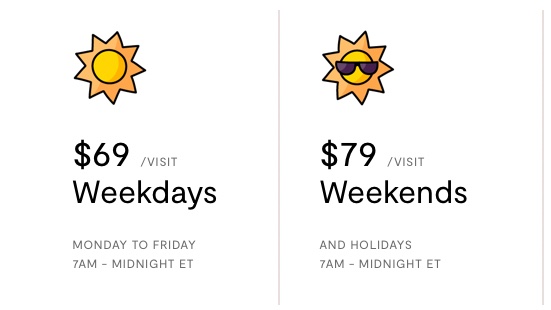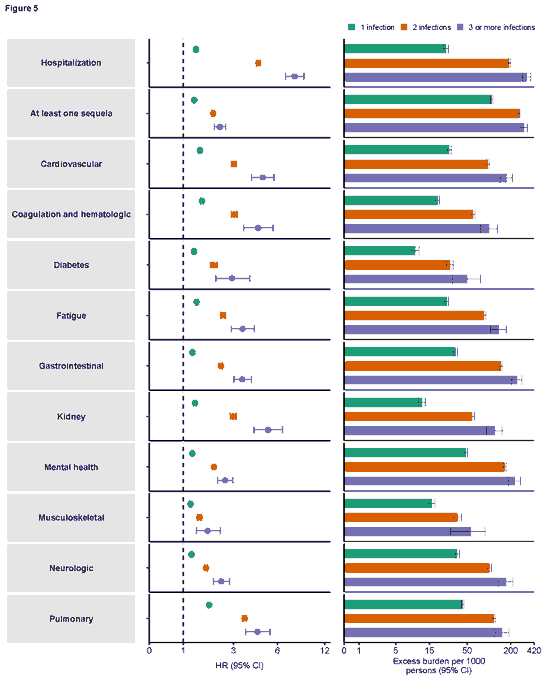Imagine policy on two axes: Good vs. Bad Policy, and either type of policy done well vs. done badly.
Invading Iraq was Bad Policy, and it was done badly beyond the initial conquest.
Quantitative easing was Bad Policy (unless you were very rich, it was good for the rich and bad for everyone else) and it was done well: It saved the rich then made them much richer. (They aren’t concerned about long term downsides.)
Social Security, Medicare, or Canada’s Universal Health care system (when first created and for a few decades afterwards) was Good Policy done well.
Zero-Covid in China is Good Policy, but in most cities, and generally across the country, it has been done badly. (A lot of these criticism are taken from Naomi Wu, who is worth reading — don’t be fooled by her appearance.)
Understand first that China doesn’t have nearly as many hospital beds, and especially ICU beds, per capita, as most of the West. If Covid gets out of control, a higher percentage of people will die than did in most Western countries. Indeed, probably many more. Even if they only lost as many as the US has so far, we’re talking about five million people or so, but it would easily be double that.
Second, understand that China has an onrushing demographic issue and is still a manufacturing state. They need workers. They fundamentally regard their population as a productive asset, while most Western elites regard their populations as passive assets to be consumed. (One argument for why Japan has handled Covid better than most developed nations is that they need their population. They regard the people as a productive asset.)
A third principle to understand: Long Covid would disable a lot of Chinese. That number, today, would probably be around 40-50 million, and would increase every day. Again, in China, people are productive assets, and you especially don’t want working age people disabled.
There is also a moral argument: Stopping people from dying or being disabled is ethically the right thing to do.
Keeping Covid under control via a “Zero Covid” policy is thus firmly in the Good Policy bucket. Even if there are some short- and mid-term economic costs (and actually, in a lot of metrics, China has done better economically than the “let’er’rip” countries) the long-term costs are much more significant.
Now the next thing to understand is that the way most people think of China, in terms of authoritarianism, is essentially wrong. Oh, China is an authoritarian one-party state, for sure, but regional elites have a lot of freedom. Only about 30 percent of the overall government budget is controlled from the center, for example. In the US, that figure is about 45 percent. States and cities are often rich, not poor (i.e., they have discretionary money), but they also have a lot of policy freedom within the guidelines set from the center.
So, different cities have done Zero-Covid differently. In Shenzen, where Naomi Wu comes from, there has been a total of one week in full lockdown. That’s it. Other cities have had more. When Hong Kong and Shanghai lost control in the summer, they had not been doing the same thing as most cities – they, in fact, didn’t lock down early, or totally, but tried a more “Western” approach.
We’re now seeing some fairly significant anti-Zero-Covid protests in some cities, including Beijing. This thread is a fairly good and balanced summary:
The issue isn’t that Zero-Covid is Bad Policy, it is that it has been done stupidly. To pick out a few major points:
One: Surgical masks are still being used. n95 masks are much more effective, and China has the capacity to manufacture them on a mass scale, almost trivially.
Two: Most Chinese homes don’t have p-traps (that little bend in your pipes under your sinks and toilet). P-traps keep water in the trap so that fumes from the sewer system below don’t get into your house. Not only does that mean your home smells better, it’s reduces disease transmission significantly.
Three: There is no mass move to install proper filtration or use of ultraviolet light in ventilation systems.
All of these actions would be low-hanging fruit for China. They can easily manufacture and install p-traps, filtration, and UV: China is the manufacturing capital of the world, and with the construction slow down there are plenty of people who need the work and are capable of doing it with respect to upgrading ventilation. It would be a win/win — more economic activity and an improved chance of achieving Zero-Covid.
Public health methods like testing, track and trace, and lockdowns work, but the real method is to fix the air quality and transmission through structural changes — exactly as we did in the 19th and early to mid-20th century to defeat diseases like Cholera, but with the water and sewage systems. Studies on the effectiveness of filtration, p-traps, n95 masks, proper ventilation, and so on show decreases in transmission that are massive — often over 90 percent.
Public health measures like mass testing and lockdown should be largely temporary; you use them until you figure out how to deal with a disease more permanently. In Covid’s case, that is NOT going to be vaccines. While they are helpful, they are not a silver bullet. Instead, what is required is the infrastructure transformation — make buildings and cities more healthy, thus reducing transmission massively (and in the meantime, for mitigation, move to n95 masks).
China has no excuses here: The science is clear and they have the industrial and installation capacity.
For China to achieve “Zero Covid,” they must move beyond emergency public health measures to permanent fixes. We know how to do it, and they actually have the capacity to do it.
That would be Good Policy, done well.
China’s mistake is trying to control Covid, not end it. The West’s mistake is not even trying to control it, let alone end it.
DONATE OR SUBSCRIBE


